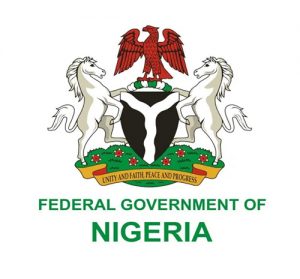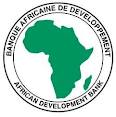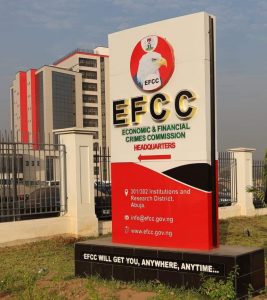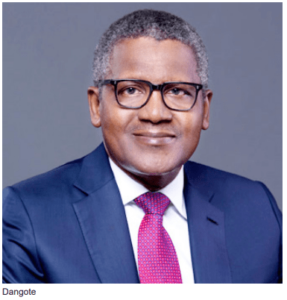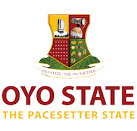Mixed reactions over CBN ban on dollar sale to BDCs

CBN Governor, Godwin Emefiele
Following the pronouncement by the Central Bank of Nigeria (CBN) with regards to the ban on issuance of foreign exchange to Bureau de Change operators, the naira has witnessed its worst outing ever at the parallel market.
As at the end of trading on Wednesday, the dollar traded at N522 to a dollar at the parallel market segment, according to data from abokiFX.com, a website that collates parallel rates.
This was also confirmed by a Bureau de Change operator in the Wuse axis of the Federal Capital Territory.
This shows N17.00 or 3.40 per cent devaluation from N505.00, the rate closed at the previous session of the parallel on Tuesday.
Although, Bureau De Change (BDCs) operators have promised to abide by all the directives of the apex bank at the end of its monetary policy committee meeting Abuja on Tuesday announced the stop of foreign exchange sales to BDCs.
An official of the Association of Bureau De Change Operators of Nigeria (ABCON), who spoke on the development under anonymity said members of the association were meeting on the ban, but they will comply with the CBN directive.
Godwin Emefiele, governor of the apex bank, while announcing the decision, said the apex bank received about 5,000 applications every month for BDC registration, adding that the operators are making efforts to dollarize the Nigerian economy.
The CBN governor said BDC operators have become a conduit for illegal financial flows working with corrupt people to conduct money laundering in Nigeria.
“They have turned themselves away from their objectives, and now agents that facilitate graft and corruption in the country. We cannot continue with the bad practices that are happening at the BDC market.”
Emefiele added that there is evidence of prevailing ownership of several BDCs by the same promoters to procure multiple FX from the central bank.
“Several international organisations, embassies patronise BDC through illegal forex dealer to fund their institutions,” he added.
“We will deal ruthlessly with Nigerian banks that deal with illegal BDCs and we will report foreign organisations patronising them.”
He said the CBN will henceforth channel weekly allocations of dollar sales to commercial banks to meet legitimate FX demands.
He also mandated banks to sell forex to every customer.
In our fact findings, a Bureau de Change seller at the Wuse axis of the FCT, Musa Ibrahim who spoke to our correspondent on Tuesday fears that the current ban on the forex May further worsen the current foreign exchange problem in the country.
“With the announcement by the Central Bank, many of my colleagues have gone into panic and that is why people are not sure what will happen in the nearest future.
“The implication is that even if you go the banks, how many if they can sell forex to teeming Nigerians that want it. It will just end up creating more problems, and the bank will be congested and there would no be enough dollars to go around.
“The situation is disturbing and I call on the Central Bank to have a rethink with regards to the decision,”
In the meantime, experts have expressed a mix reactions to the recent directive by the CBN.
Economist and former Director-General, Lagos Chamber of Commerce and Industry, Dr Muda Yusuf said what was happening in the foreign exchange market as a consequence of the CBN’s policy choice of a fixed exchange rate regime and administrative allocation of forex.
He said, “It is a policy regime that has created a huge enterprise around foreign exchange – round-tripping, speculation, over invoicing, capital flight etc.
“The action of the apex bank amounts to tackling the symptoms rather than dealing with the causative factors, which is not a sustainable solution.
Regrettably, the CBN does not believe in the market mechanism. Yet market systems are time tested as instruments of efficient resource allocation in leading economies around the world.”
He added, “Moving retail forex transactions from BDCs to the banks was like kicking the can down the road. The same issues would manifest even with the banks.”
According to him, the way out of the foreign exchange conundrum was for the CBN to allow the market to function.
He said, “The CBN needs to give the market a chance. Its current approach would continue to deepen distortions in the economy, perpetuate round-tripping, fuel speculation, suppress forex supply and boost the underground economy.”
Also, the past President of the Association National Accountants of Nigeria, Dr Sam Nzekwe, believe it was apt for the Central Bank of Nigeria to discontinue forex sale to BDCs.
He said, “BDC is meant for light travellers, someone that is travelling and has no time to go to the bank who can just stopover at the airport and buy few dollars and travel with it. The CBN was allocating forex to them which was a wrong decision and it is a terrible thing. That is why they encouraged round-tripping.”
According to him, the BDCs need to source their FX alternatively, as they had hitherto abused the privilege given to them by perpetrating illegal deals.
Meanwhile, the monetary policy committee of the CBN has also announced its decision to retain the monetary policy rate (MPR) at 11.5 per cent.
At its last meeting, the committee members also voted to retain MPR at 11.5 per cent – the rate it had been since September 2020.
Godwin Emefiele, governor of the apex bank, had on Tuesday at the end of a two-day meeting at the CBN headquarters in Abuja said, “The MPC decided to hold all policy parameters constant. Committee thus decided by a unanimous vote to retain monetary policy rate at 11.5 per cent,” Emefiele said.
“MPC voted to retain asymmetric corridor +100 -700 basis points. It also voted to retain cash reserve ratio at 27.5 per cent and retain liquidity ratio at 30 per cent.”
The action of the CBN monetary policy committee is in line with the recommendation of the IMF.
In its latest World Economic Outlook (WEO) released on Tuesday, IMF advised central banks to look through transitory inflation pressures and avoid tightening until there is more clarity on underlying price dynamics.
“Clear communication from central banks on the outlook for monetary policy will be key to shaping inflation expectations and safeguarding against a premature tightening of financial conditions,” IMF said.
The Washington-based institution projected growth of 2.5 per cent for Nigeria in 2021 on the slow rollout of vaccines.
Meanwhile, all efforts to get comments from the President of the Bureau de Change operators, Alh. Aminu Gwadabe, proved abortive as he refused to respond to calls for the association’s perspective on the CBN directive.
It would be recalled that the CBN had been supplying each licensed BDCs $10,000 twice per week at the rate of N393 with the instruction that they should sell with a margin of N2.




